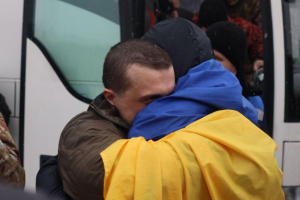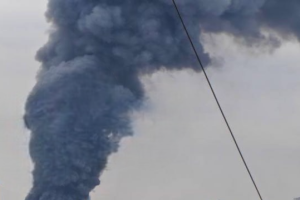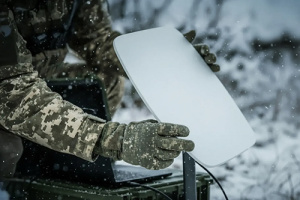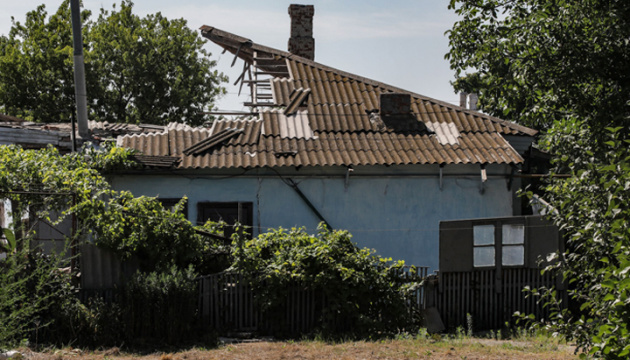
Frontline Ochakiv: thirst for life and hatred of Russian invaders
The small town of Ochakiv, located 60 kilometers from Mykolaiv, suffers from daily shelling by Russian invaders. Artillery and mortars are fired at the town several times a day from the territory of the temporarily occupied Kinburn Spit. Locals say that since the beginning of the full-scale invasion, they hardly remember a day when Ochakiv was not "hit". The Russians took a short pause after the explosion of the Kakhovka hydroelectric power plant, but now the shelling has resumed with renewed vigor. It is hard to find houses in the city with intact windows - almost all of them are boarded up with plywood. In Ochakiv, 70% of the housing stock has been damaged, and 30% of the houses are beyond repair. But despite this, many Ochakiv residents do not leave their homes, the city lives its difficult life, and the utility companies are restoring beauty - planting flowers and asphalting the roads destroyed by the explosions.
Ukrinform correspondents visited Ochakiv and learned about the urgent needs of the city and how the most resilient residents live there.
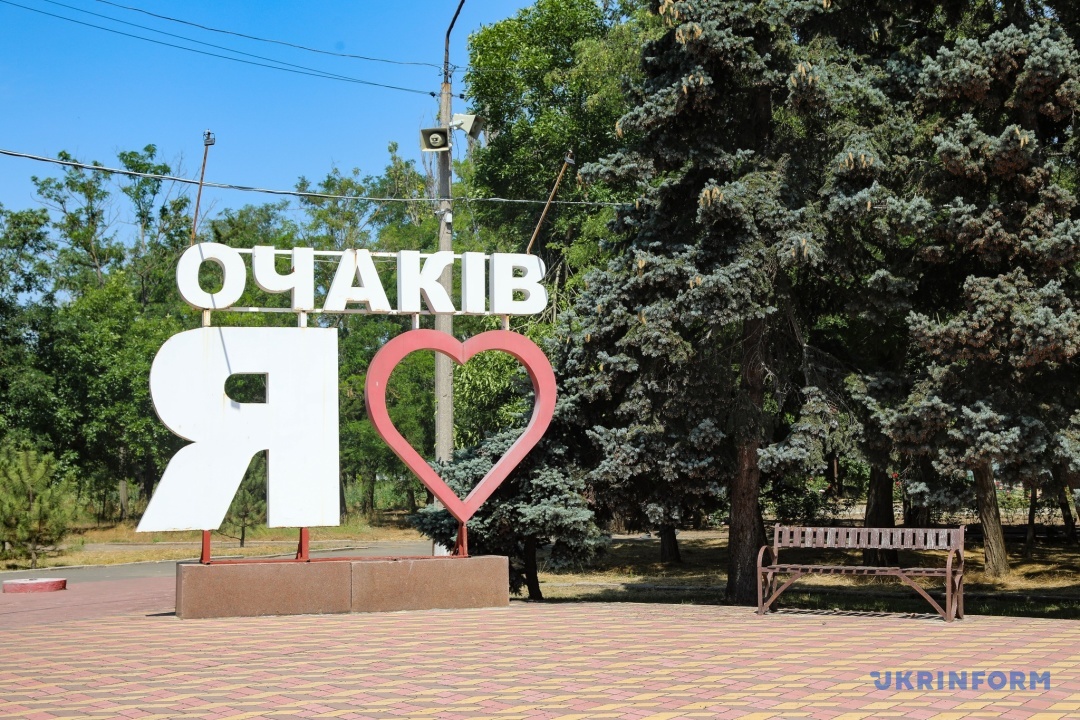
EVERYONE WHO STAYED IN THE CITY IS A HERO
According to the deputy mayor, Oleksii Vaskov, about 16,000 people lived in Ochakiv before the war. Another 700 people lived on the territory of the Kinburn Spit. With the outbreak of hostilities, half of the population immediately left the city. The second "wave" of departures began in 2023, when the occupiers hit a cache of Soviet anti-ship mines. After a powerful explosion, there were almost no intact buildings left in the city.
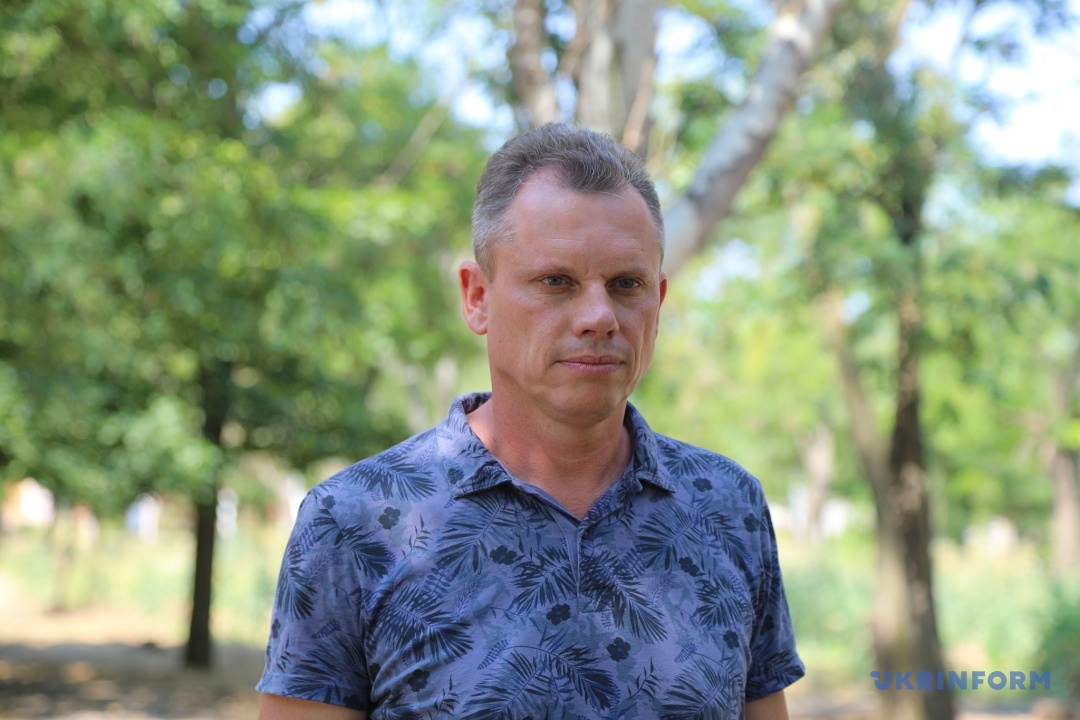
- When the full-scale invasion began, there were about 12,000 of us left, and we track this by the utilities consumed and the humanitarian kits received by the city's residents. The most terrible event happened on January 9 this year, it was a very powerful explosion. About 70% of our houses were destroyed. Secondary schools and a music school were damaged, windows in the hospital were smashed. The local Palace of Culture, which had been opened after major repairs before the war, suffered significant damage. The coastline suffered the most, of course. After January 9, there were about 6,000 people left," says Oleksii Vaskov.
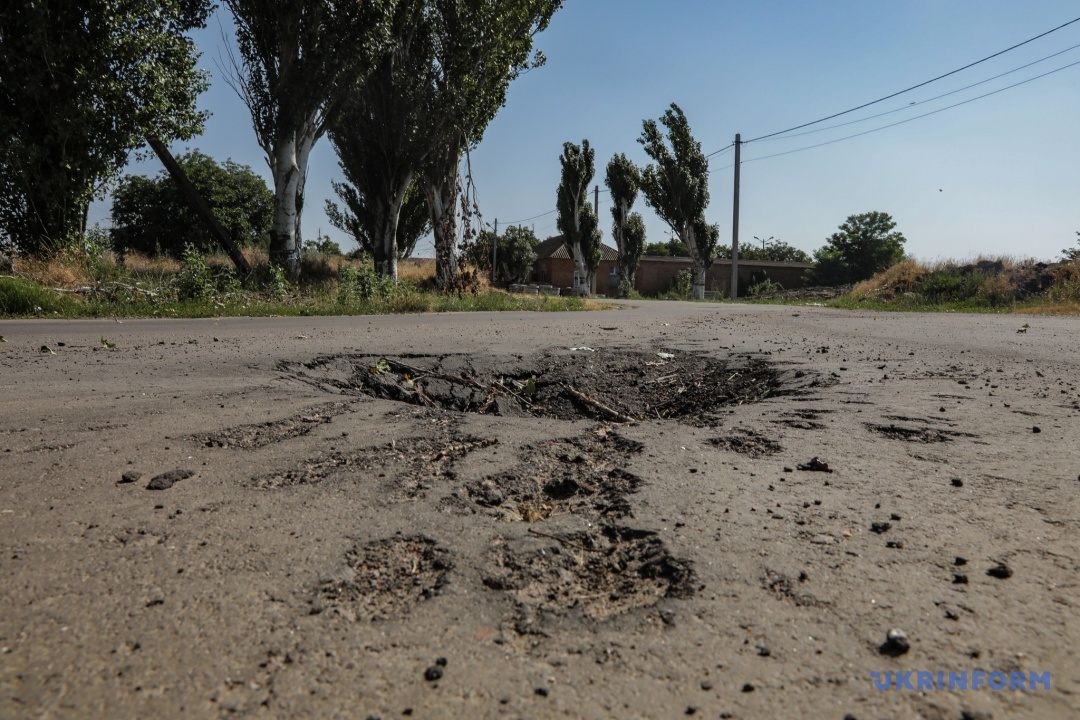
According to the deputy mayor, Ochakiv is currently experiencing a gradual increase in population. Not all people live directly in the city: some come here to work during the day and go to the villages in the evening, where the enemy artillery does not reach.
- Now, based on the humanitarian kits and utilities consumed, we estimate that the population reaches 10-11,000,» added Oleksii Vaskov.
"Mostly elderly people live in Ochakiv, but there are also children.
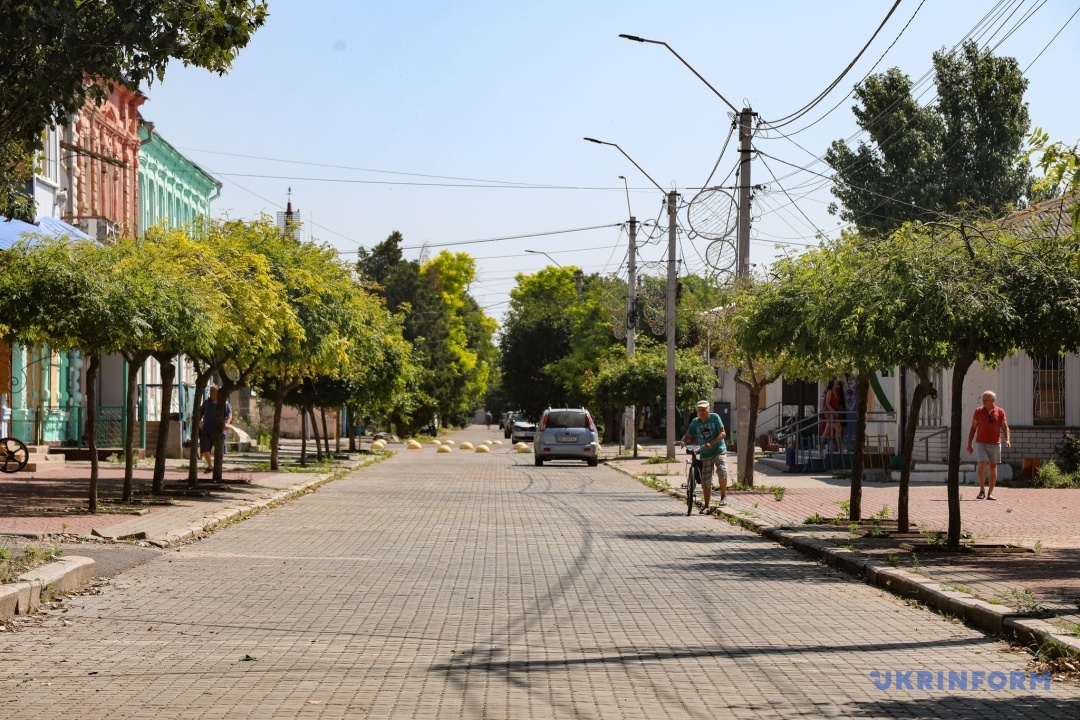
- Of course, most of the mothers and children have left, but still, about 300 children are in the city today," says the deputy mayor.
"The city is shelled almost every day. And repeatedly.
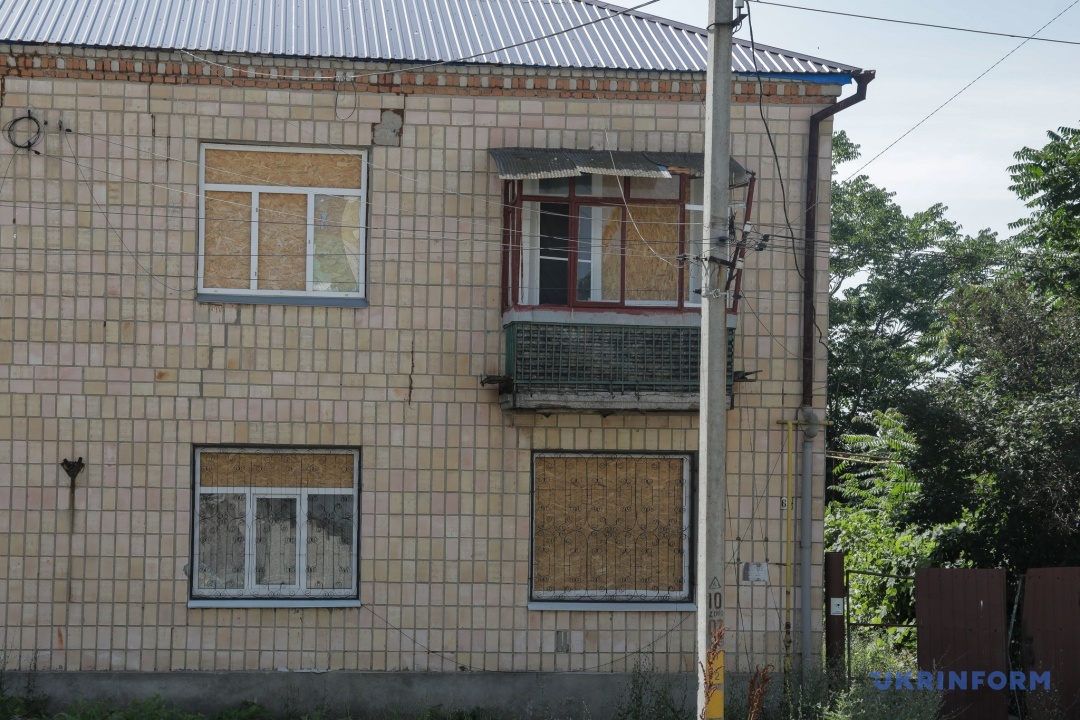
- We are being shelled with mortars, grenades and all kinds of weapons that the Russians have. Even our children understand what has come from where and what kind of shell. On the one hand, this may not be bad, but on the other hand, it is very terrible... The worst thing is artillery, because we do not know when it will come. We are alarmed by the fact of shelling. This is not rocket fire, which can be traced back to a certain time before the "arrivals". Artillery shelling is literally three to five seconds from the time it starts to the time it arrives. So for me, everyone who stays and works in the city is a hero," says Oleksii Vaskov.
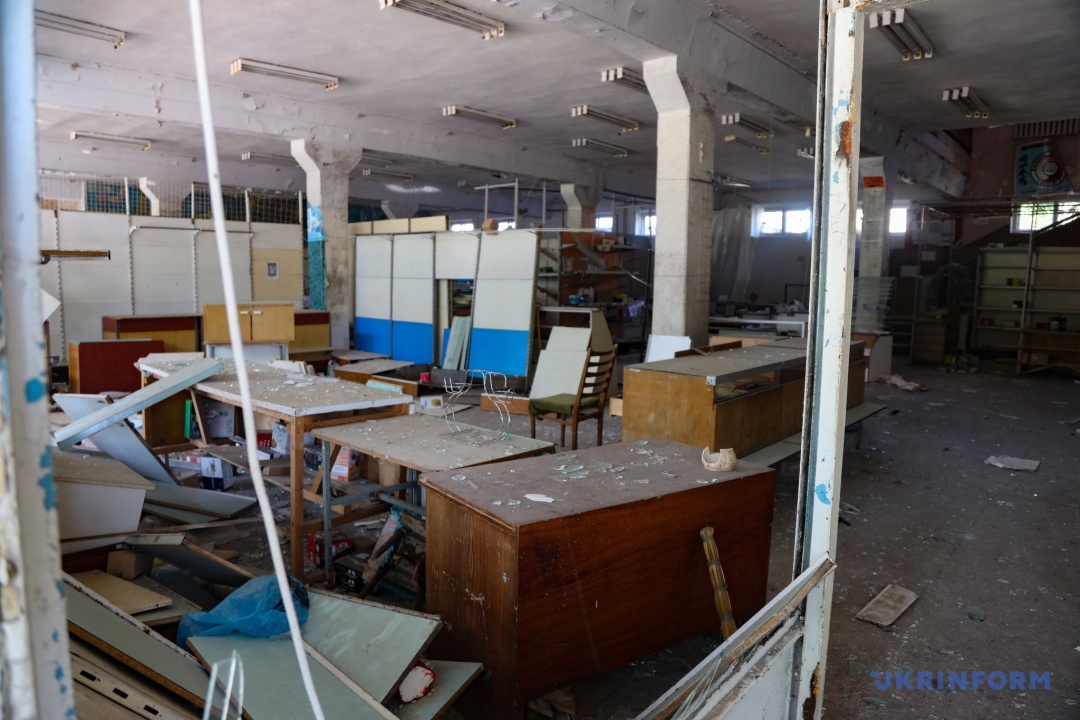
CONSTRUCTION MATERIALS ARE AVAILABLE, BUT THERE IS A SHORTAGE OF LABOR
Despite the fact that the city is under constant fire, utilities are working and trying to restore the destroyed buildings. The utility crews have the most popular building materials, such as corrugated board, slate and film for temporary window repairs.
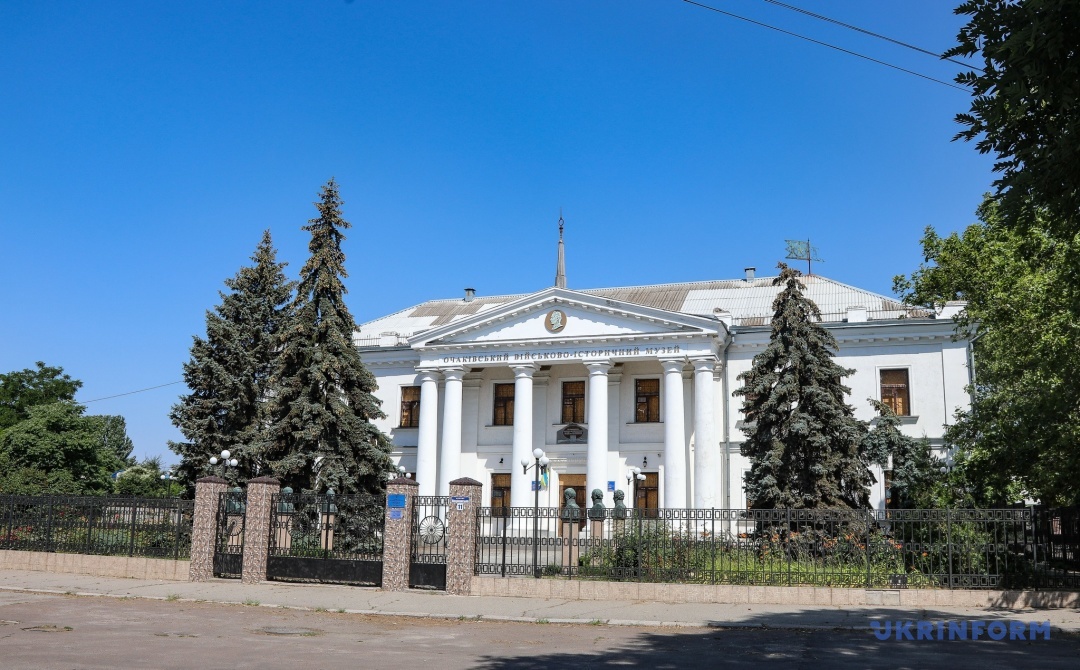
- Volunteers help us, the regional administration helps us, and many people help us. But still, the main problem is labor. There are not enough construction teams. And even for the money we pay, not everyone is ready to work under fire. There is a catastrophic shortage of people. The majority of Ochakiv's population is elderly, and even if we provide them with materials to repair their homes, they simply cannot physically do it themselves. Of course, if people are able to repair their homes themselves, we provide them with everything they need to quickly repair the roof and windows," explained Vaskov.
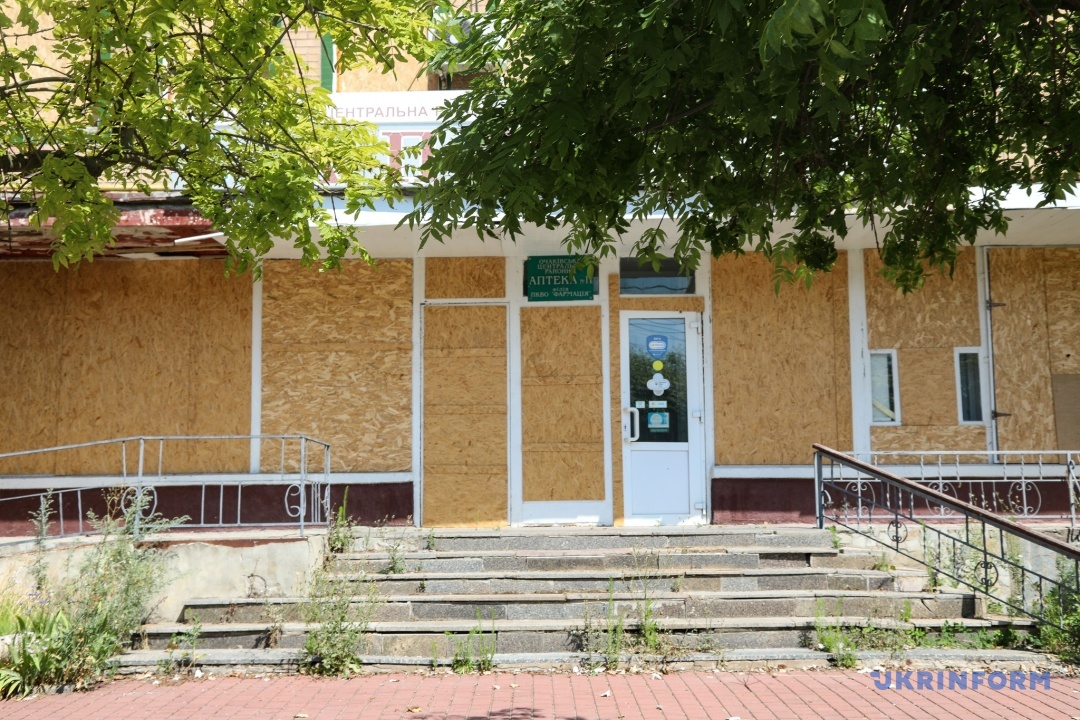
The city is also working with foreign organizations to develop programs to restore the entire community. According to the vice mayor, the project is planned to be approved at the next session of the city council.
- "But the main problem why we can't start a full-fledged recovery is the active hostilities. So the main assistance will probably come after they are over," the official added.
In addition to labor, the city lacks specialists in other areas, from tractor drivers to department heads.
- Another problem is the "active" part of the local population, which behaves as if we are living in peacetime. People are actively discussing on social media and telling the utility companies what to do and how to do it. Where to paint and where to make a road," Oleksii Vaskov smiles.
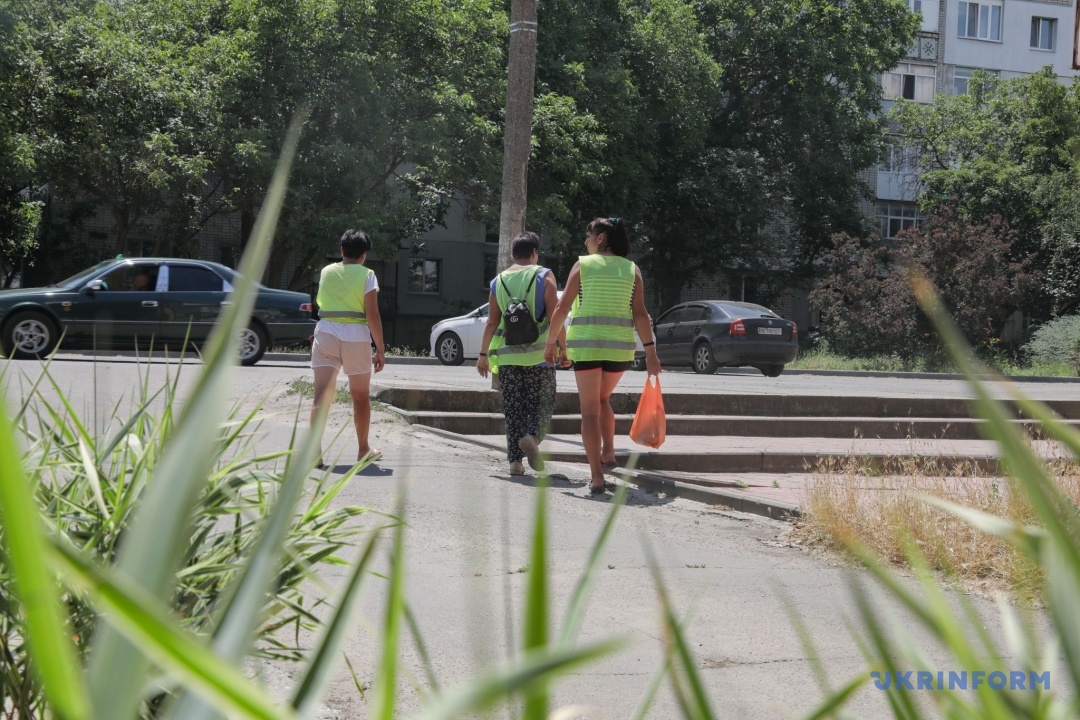
In general, the work of public utilities in the city is well established. In Ochakiv, damages to gas and electricity networks are promptly repaired, and the city has water and electricity.
- The municipal service of improvement is also working. We are trying to repair the asphalt, sidewalks, restore green spaces, flowers and so on, so that people can somehow understand that they live in the city and can at least partially distract from the war," added Vaskov.
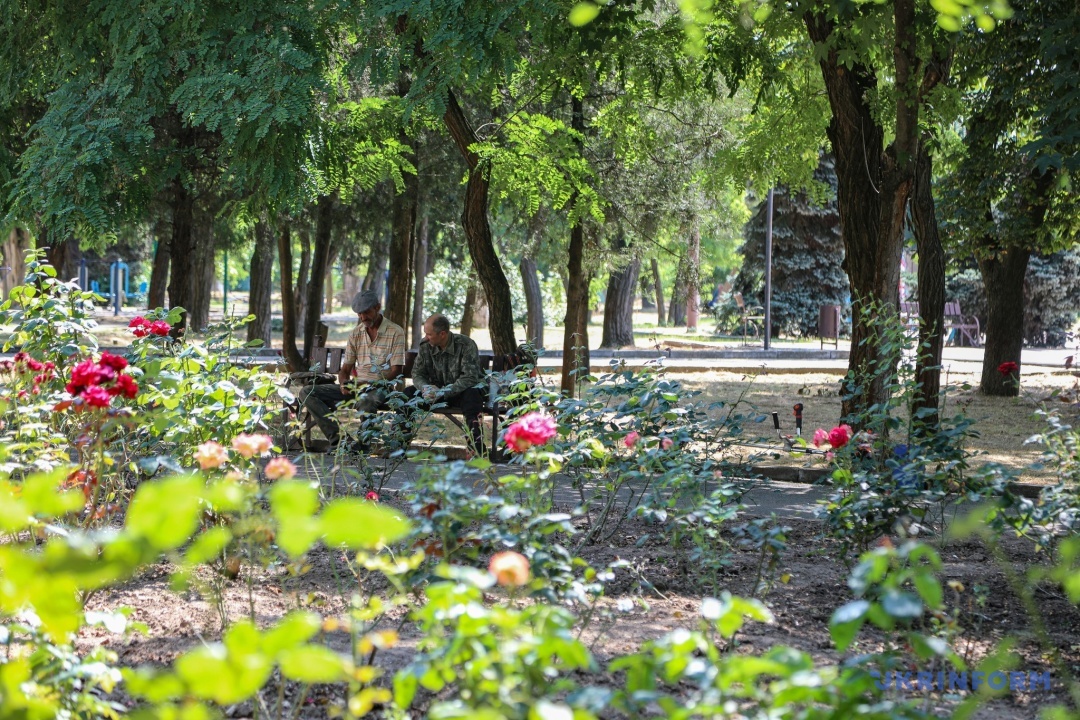
LIFE UNDER FIRE
Indeed, as we walked through the streets of Ochakiv, we noticed rose beds in bloom. At the same time, we met a team of utility workers who were cleaning up fresh glass from the sidewalk - the aftermath of the morning shelling. We asked them if they were not afraid to work and live in such conditions.
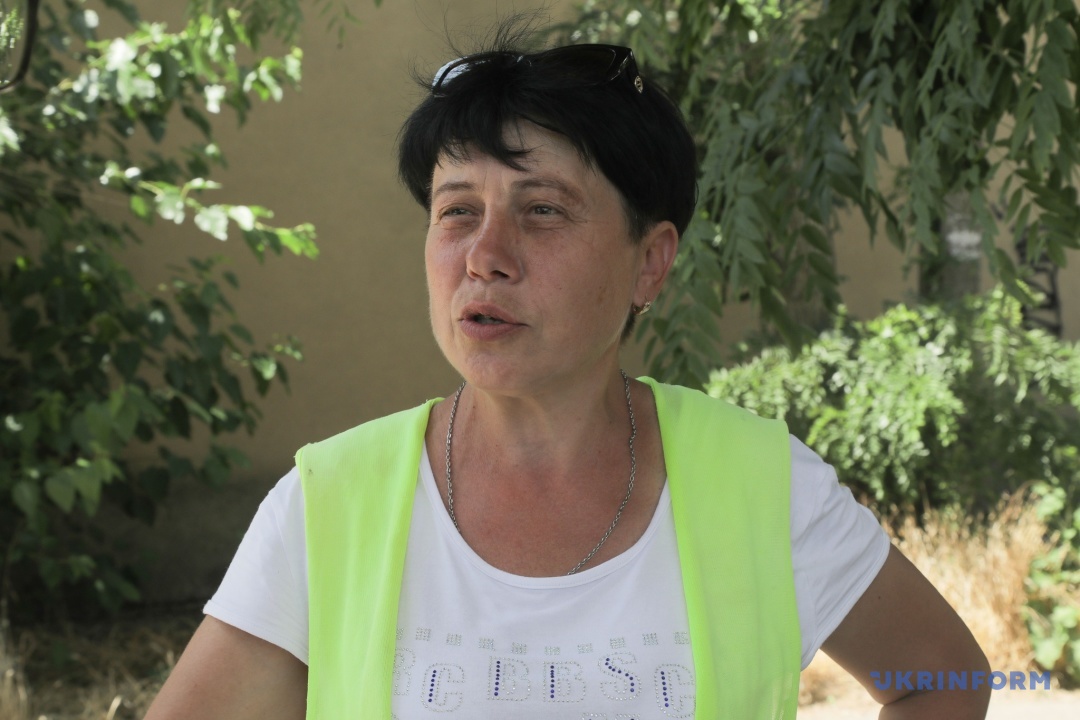
- It’s scary. But we've already gotten used to what to do. Now we are watering the roses, and the glass has already been cleaned. If there's a bang somewhere, we immediately clean it up so that everything is clean and tidy. We live in Ochakiv and never leave. This is my home, I have a lot of animals and I won't leave them. When it's blowing hard, we hide. We hide in the entrances, in the basements, and under the walls, wherever we can. We hide to avoid getting hurt by the shrapnel. We came under fire many times while working. We were running away, and it would catch up with us... We are used to it... We can tell by the whistle what is being fired and whether we need to hide. If it's an MLRS, it will terrify us at first, and then they will give us the alarm. Then we know what has already arrived. And when it's rockets, it's not for us. We are a small town, missiles are expensive, and they won't spend them on us. That's how we work. Yesterday it was blaring all day, I was so tired of it!" says Iryna Anatoliivna, a worker in the municipal service.
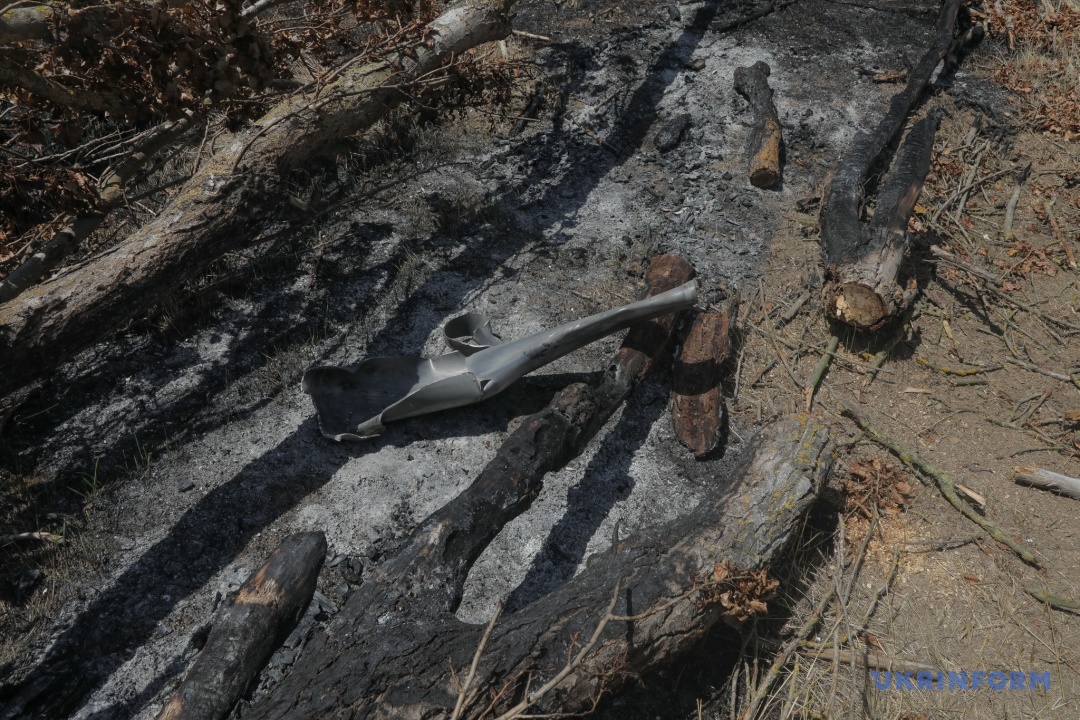
WE CAN ONLY HATE THEM
Our conversation with Ms. Iryna was interrupted by an air raid alert - an enemy drone was spotted over the city. So we decided not to tempt fate and quickly headed for the nearest shelter - the basement of a five-story building. On the contrary, the alarm did not frighten the utility workers, and the women went back to work.
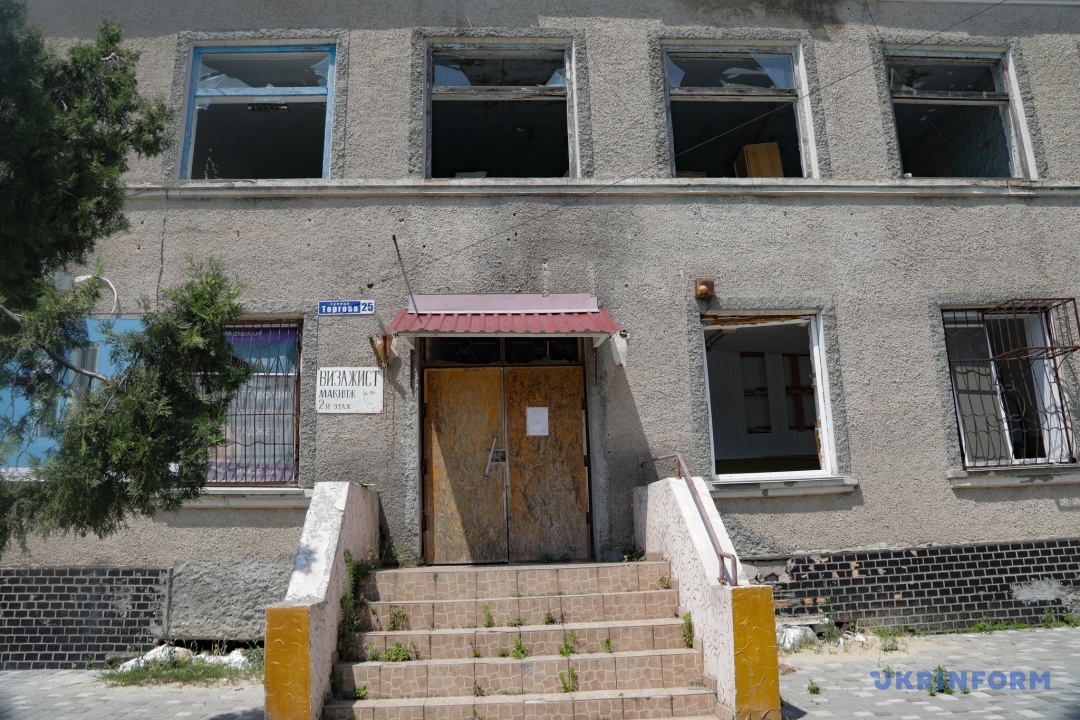
Despite the fact that the shelter was located near the local market, where there were quite a few people, only a few went down to the basement. It seems that the locals are really used to the war and nothing scares them. In the shelter, an elderly lady came up to us and was surprised to see people with cameras. We explained to her that we were journalists from Odesa and were filming a report about the life of Ochakiv.
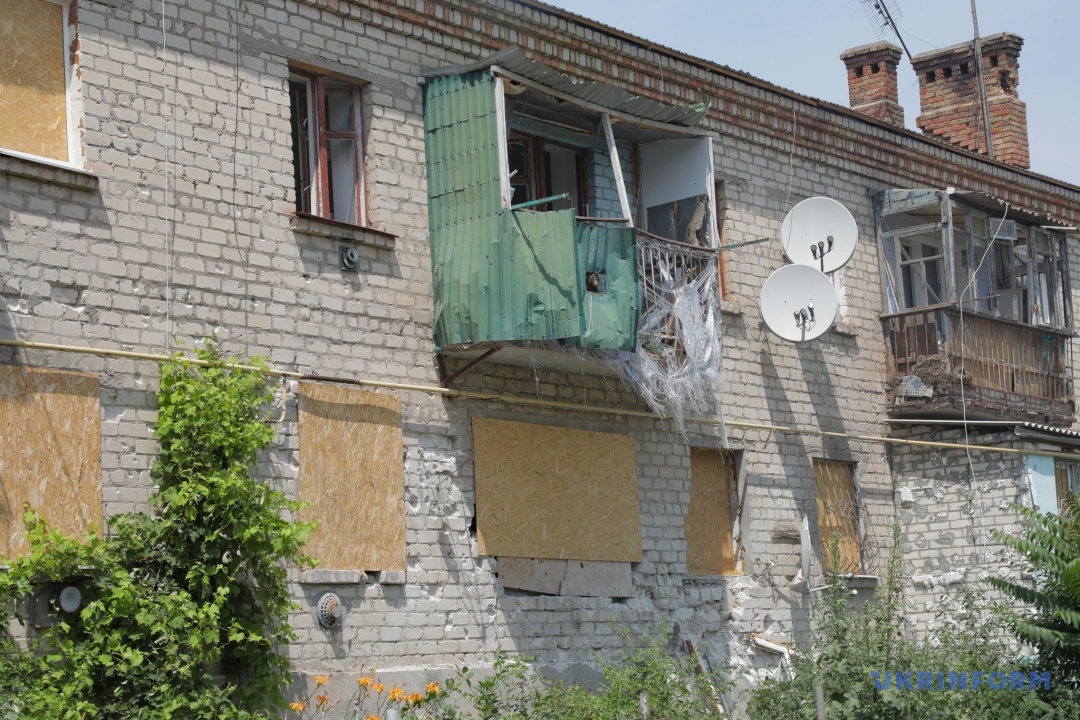
- "Odesa...," she stretched out, savoring each letter in the word.
- "I have a daughter in Odesa. She lives on Balkivska Street. I love Odesa! And I stayed here, in Ochakiv. I have dogs, and I also feed stray animals. My daughter calls me to come back, but how can I go?" the woman complains.
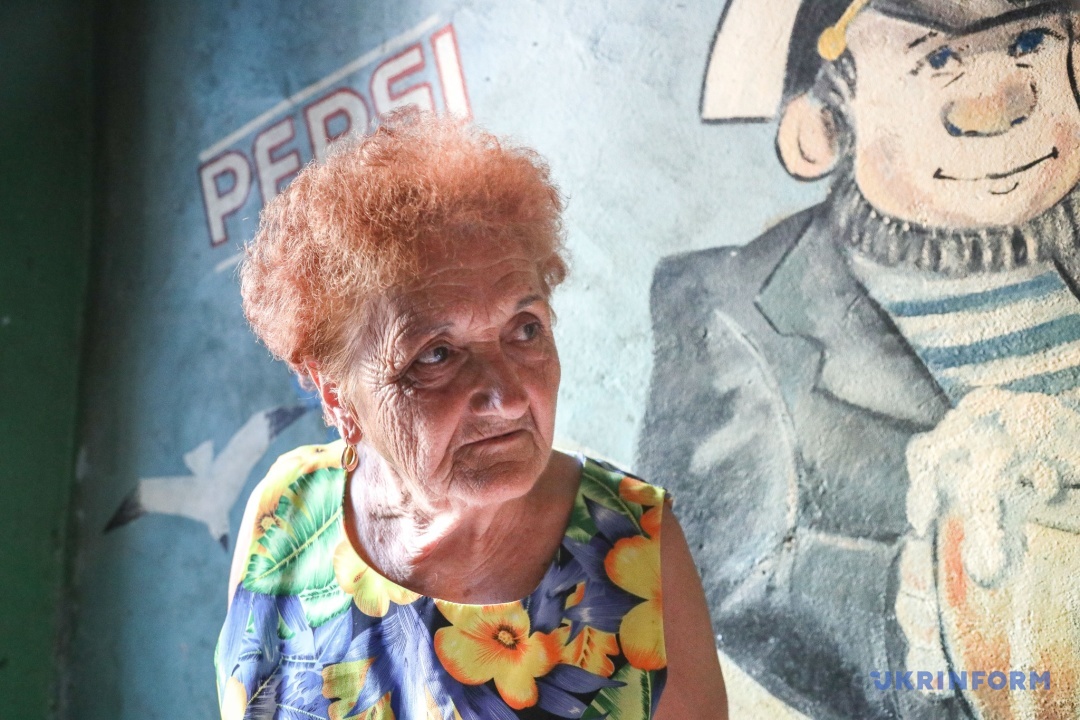
Olena has not left the city since the first days of the war. She says there are only four people left in her building. She is friends with her neighbors, and they celebrate all the holidays together.
- It was very cold in winter. I don't know how we survived the winter... I covered everything with blankets and pillows. But the icy wind still walks around the apartment, the windows and doors have long been blown out by explosive waves. What has life become? When will it end? This is such a terrible war... When I was young, I lived in Crimea with my husband, he was a military pilot. And now they are bombing us on the planes my husband used to fly! We are not afraid, but what can we do? I am 70 years old, and I still want to live! The whole Kinburn was destroyed! And how beautiful it was there! The forests, the sea... everything was destroyed! How can we love them? We can only hate them," Olena says and wipes her tears.
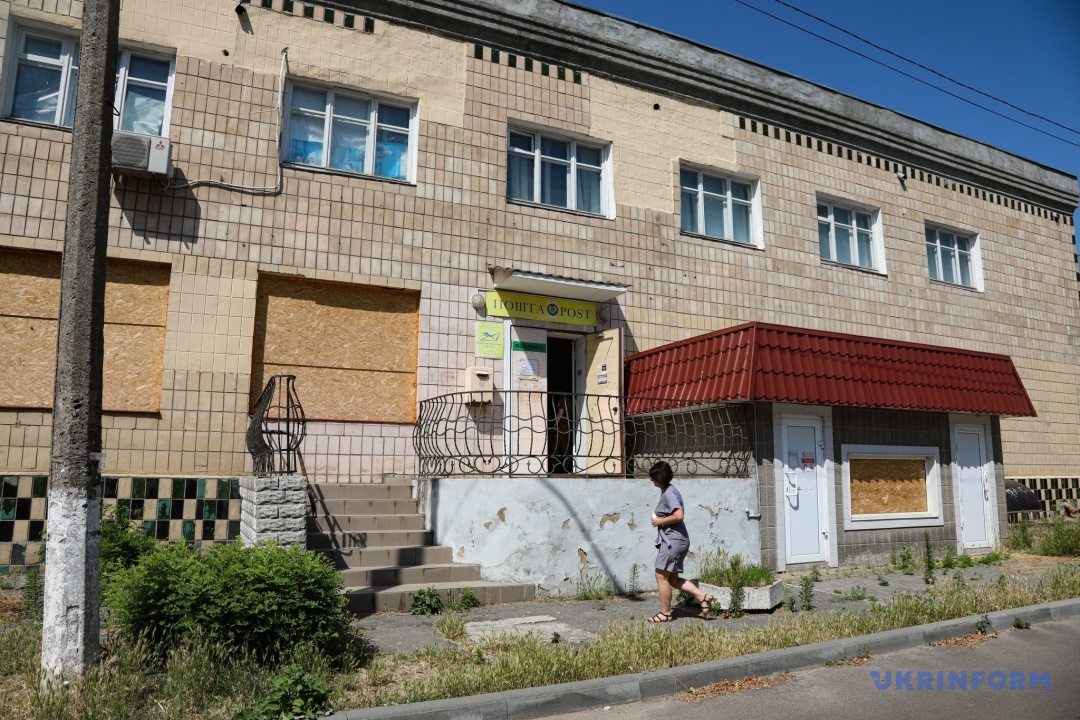
Meanwhile, the alarm system sounds the alarm. We leave the basement. Olena goes to the post office to receive a money transfer from her daughter. And we, saddened by the woman's experiences, return to the market to buy water for the journey home... Here we talked to a local resident, Oleksandr. The man lives in an apartment on the 4th floor in a building behind the market. He tells us that his neighbors downstairs once "got hit". The huge hole in the wall has now been repaired. Only the different color of the bricks in the city of destruction reminds us of the arrival.
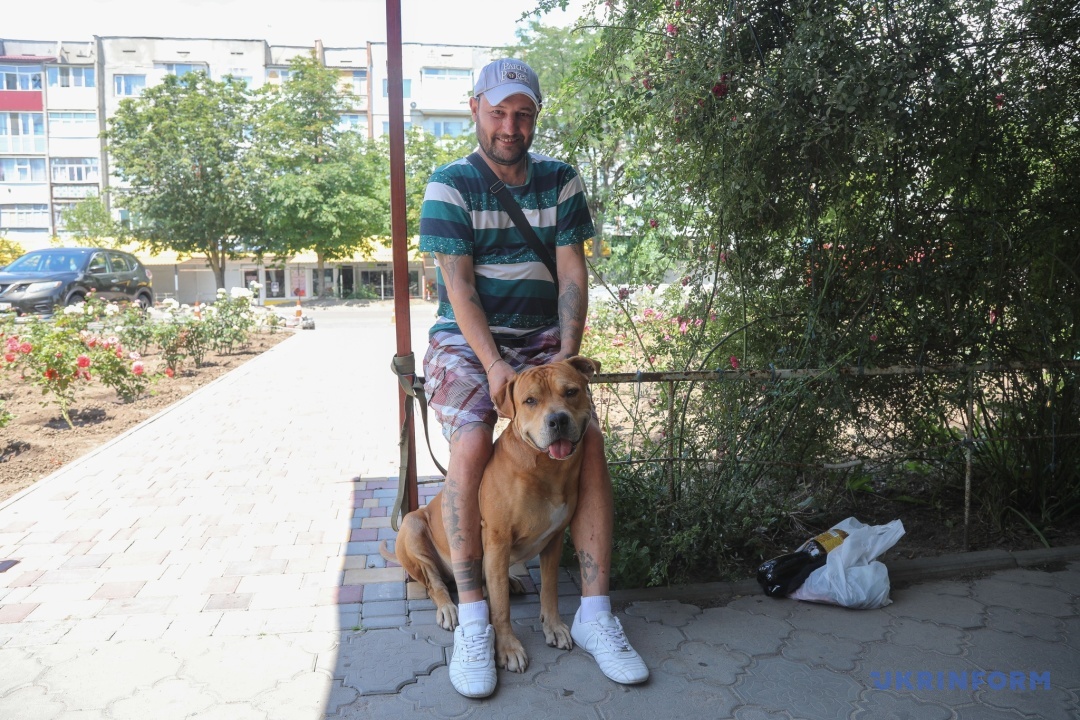
- We miraculously survived. I thought it was the end. The house was shaking, it seemed to me that it was going to collapse. Since that day, my dog has been very nervous. He's afraid of loud noises, afraid of alarms. The veterinarian prescribed him a sedative, but it doesn't help much," Oleksandr recounts his experience.
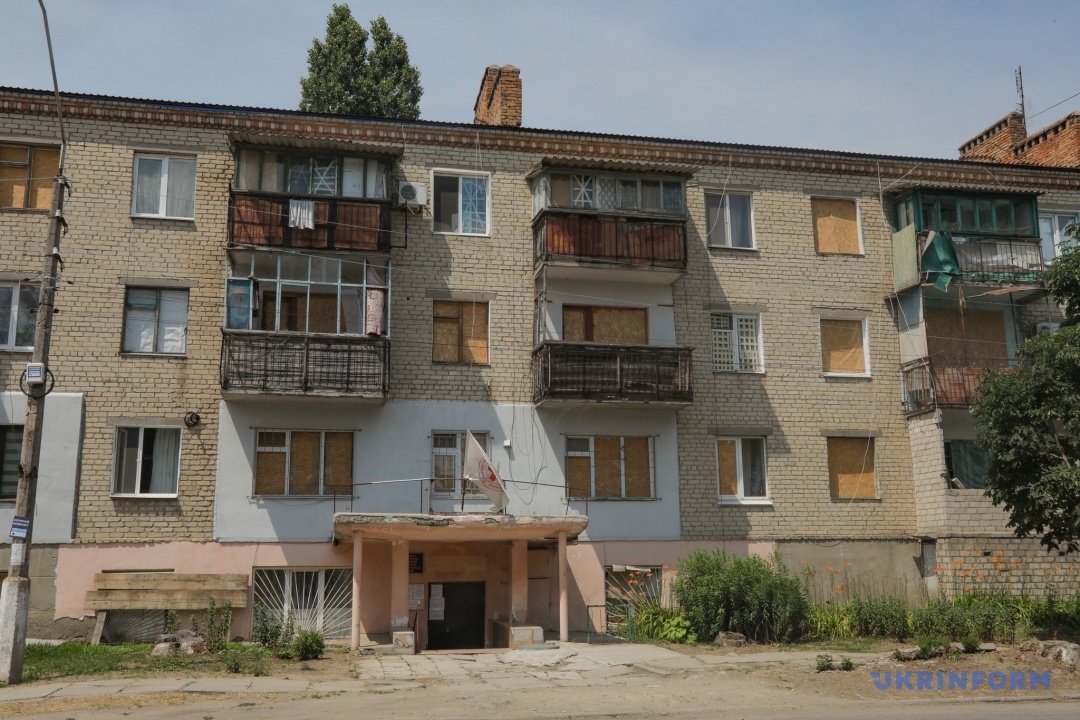
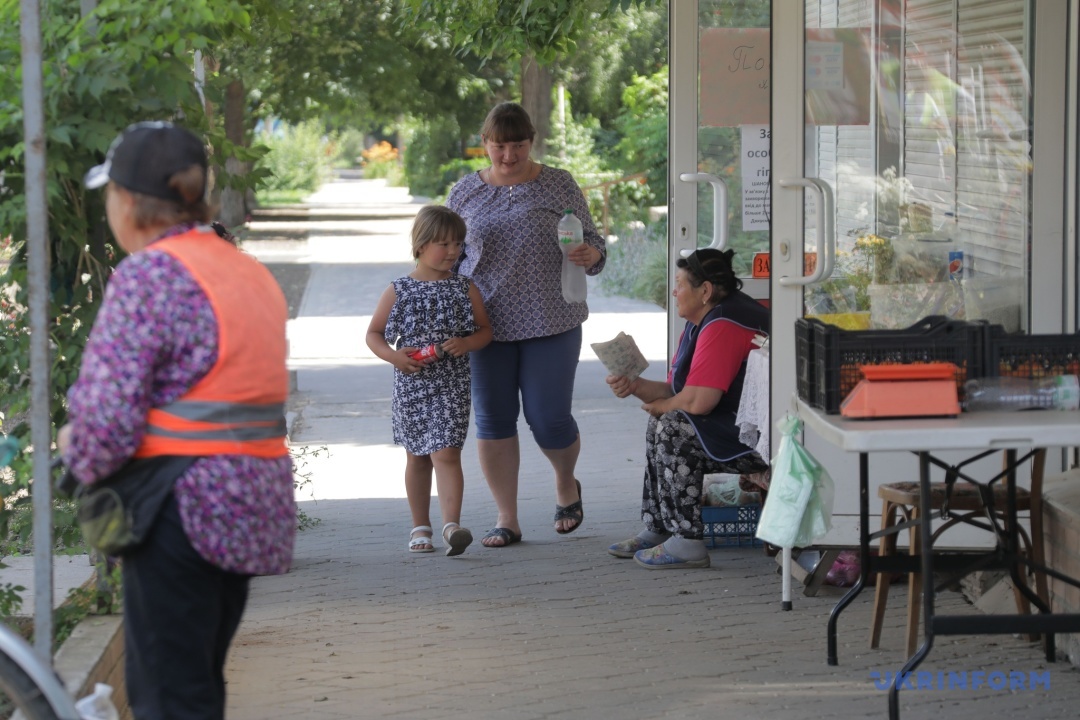
The man also does not want to leave the city. He has a job here.
On the way to the bus station, we pass a half-ruined house. We ask our military escort if the owners survived. It turned out that last summer an enemy shell hit the house. Three residents were killed, including a mother and her 6-year-old daughter. The strike occurred at five in the morning, when people were sleeping.
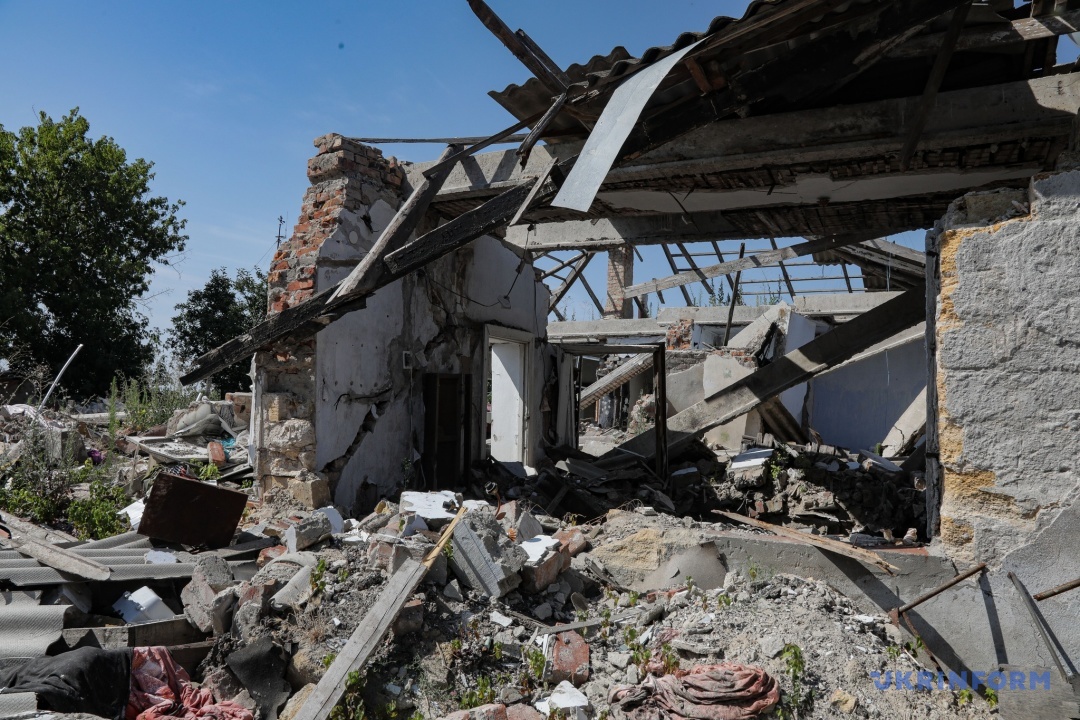
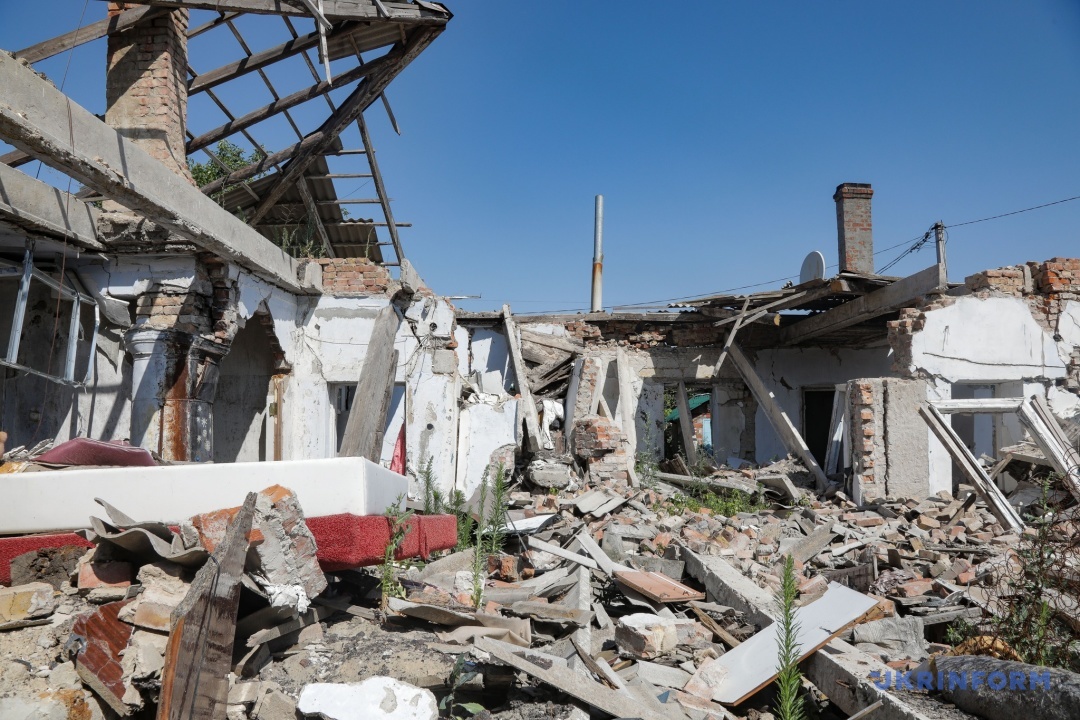
We were allowed to film the scene of the tragedy. We walked through the rubble of the walls, through the wreckage of lives. Children's toys, hair dryers, broken dishes and books. The title of one catches my eye: "Tales of Russian Writers". The child who lived in this house will never hear any more fairy tales. The words of our recent acquaintance from the shelter, Ms. Olena, echo in my head: "We can only hate them»...
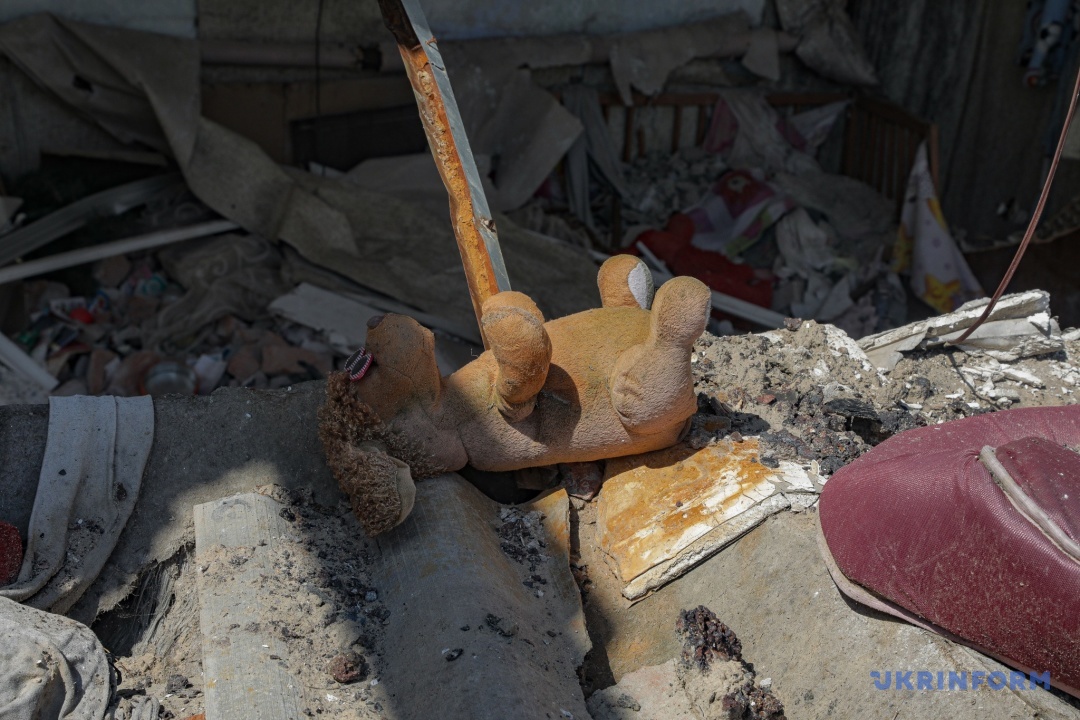
P.S. In total, according to the deputy mayor, more than 20 civilians have been killed in Ochakiv since the beginning of the war, three of them children.
Hanna Bodrova, Odesa
Photo by Nina Liashonok

